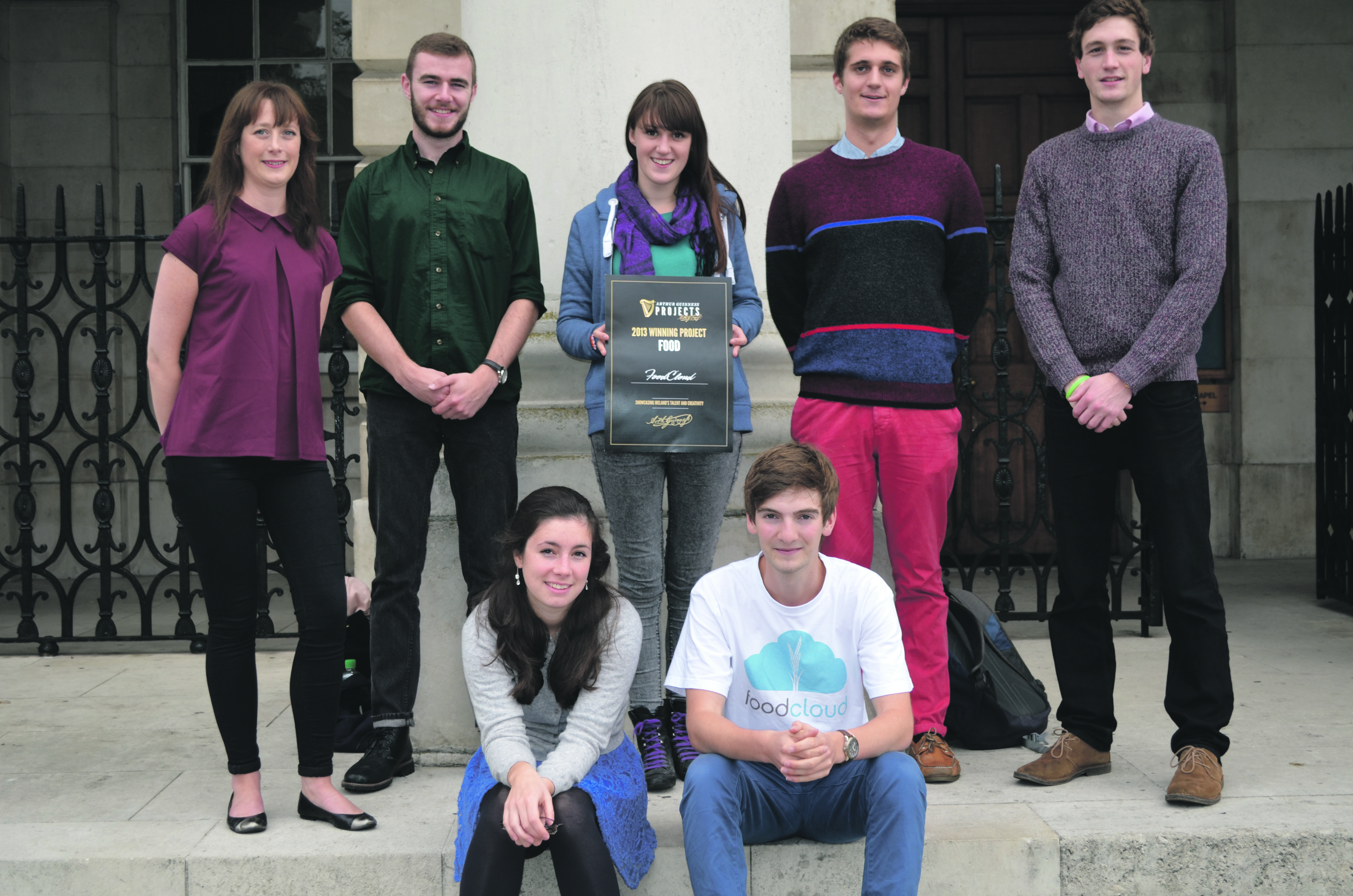Dean McHugh | Contributing Writer
Foodcloud, a community-based social enterprise run by Trinity students, was announced as the winner of the Arthur Guinness Projects food category last week. The scheme received 3711 votes and, as a result of its victory, has received €40,000 in funding to continue its work.
Foodcloud brings food businesses and charities together using a smartphone app, and is headed by Iseult Ward, a Business and Economics graduate and 2013 Trinity Business Student of the Year. The “deliciously simple” idea for the project came from co-founder Aoibheann O’Brien’s dissertation while studying for an MSc in Environmental Science at Trinity.
Alex Sloan, Communications Officer for the project and final year History and Political Science student, explains the process: “You type how much food you have and where you’re situated into an app. That sends out an automatically generated text message to the charity. If they say no, the text message bounces to the next charity, and so on, until someone accepts it. Once the charity says yes, they go around and pick it up.”
The enterprise was first supported by TCD Enactus, a college branch of the international Enactus community that promotes sustainability through entrepreneurial action.Foodcloud then progressed into Trinity Launchbox, a three-month incubator which provides funding, space, and mentoring for college start-ups. Iseult Ward credits Launchbox with helping Foodcloud to establish pilots with Tesco and Itsa Bagel, as well as helping the enterprise win the Arthur Guinness Projects.
For Sloan, Launchbox was “a springboard” for Foodcloud, and he also talks about the culture of support Dublin offers to emerging businesses. “Dublin is the technical start-up hub of Europe. If you’ve got an idea, Dublin is a good place to have it.” Mentioning Trinity in particular: “College has been very supportive. The business department has been fantastic.”
Sloan is positive about working with student volunteering agencies around Trinity. “Most of [the Foodcloud team] have done VDP soup runs. We’re a big supporter. On several occasions we have donated food to Teach Mhuire, the charity that the VDP soup run operates out of. If we can, we’re going to donate food to the Student Hardship fund. It started out as a student voluntary thing, and we definitely want to keep that element of it.”
However, Sloan also speaks about the difficulty of balancing Foodcloud’s professional image with its student roots. “We wanted to get away from the perception of being a student-run project. We had to be professional… Charities are very reluctant. They are usually stuck in their ways. That’s a big obstacle.”
Iseult Ward recalls how Foodcloud faced the challenge of “trying to change behaviours and attitudes towards food waste and food poverty. Ireland is the fifth worst waster of food in Europe… one million tonnes of food is wasted and over 600,000 people face food poverty in Ireland.”
The company cites its past failures as an essential part of its development. “Don’t be afraid of failure,” advises Sloan. “We failed. Our first ever pilot scheme didn’t work out at all. We didn’t know our problem well enough. You have got to know your area inside out.
“In Ireland there’s such a stigma about failing. That shouldn’t be the case. In other places such as America it’s seen as a success as long as you learn from your failure… just go for it.”
Iseult Ward is keen to build on the recent success of Foodcloud in the Arthur Guinness Projects. “Foodcloud would like to expand to a national level. We see ourselves being set up in every town and city in Ireland and hope to capture a significant amount of the 250,000 tonnes of food that is wasted by the commercial sector in Ireland.”
Foodcloud welcomes those interested in volunteering with the enterprise. They can be contacted through [email protected].







